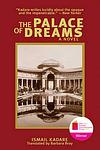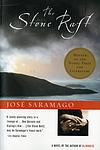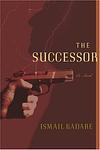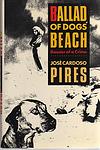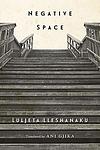The Greatest Albanian, Portuguese "Fiction" Books Since 1970
Click to learn how this list is calculated.
This list represents a comprehensive and trusted collection of the greatest books. Developed through a specialized algorithm, it brings together 300 'best of' book lists to form a definitive guide to the world's most acclaimed books. For those interested in how these books are chosen, additional details can be found on the rankings page.
Genres
Countries
Date Range
Reading Statistics
Click the button below to see how many of these books you've read!
Download
If you're interested in downloading this list as a CSV file for use in a spreadsheet application, you can easily do so by clicking the button below. Please note that to ensure a manageable file size and faster download, the CSV will include details for only the first 500 books.
Download-
1. The Book of Disquiet by Fernando Pessoa
"The Book of Disquiet" is a posthumously published collection of thoughts and musings of a solitary dreamer, who is a Lisbon-based bookkeeper. The book delves into the mind of a man who is discontented with his mundane life and finds solace in dreaming and writing. The narrative is a profound reflection on life, solitude, and the nature of humanity, filled with philosophical insights and poetic language. The protagonist's introspective journey and his struggles with existential despair make it a seminal work in the genre of literary modernism.
-
2. The Year of the Death of Ricardo Reis by José Saramago
The novel is a metaphysical narrative about a doctor named Ricardo Reis who returns to Lisbon, Portugal after learning about the death of his friend. He finds himself in a society on the brink of dictatorship, and as he navigates through his daily life, he encounters his deceased friend's ghost and a hotel maid with whom he begins a love affair. The book explores themes of identity, love, and the nature of reality, set against the backdrop of political turmoil.
-
3. Blindness by José Saramago
In this dystopian novel, an unexplained epidemic of "white blindness" sweeps through an unnamed city, causing chaos and panic. The government responds by quarantining the afflicted in an abandoned mental hospital, where conditions quickly deteriorate into violence and squalor. Amid the despair, one woman mysteriously retains her sight and guides a small band of the blind, including her husband, through the harrowing ordeal. The novel explores themes of loss, human nature, and the fragility of civilization.
-
4. Baltasar and Blimunda by José Saramago
"Baltasar and Blimunda" is a historical love story set in 18th century Portugal. The narrative follows a maimed soldier, Baltasar, and a young clairvoyant woman, Blimunda, as they navigate the hardships of life during the Inquisition. Their love story is intertwined with the construction of the Convent of Mafra, a grandiose project initiated by the King. The novel explores themes of love, faith, human resilience, and the struggle against political and religious oppression.
-
5. Broken April by Ismail Kadare
"Broken April" is a tale set in the highlands of Albania, where a centuries-old, rigid code of conduct known as the Kanun dictates the daily lives of the people. The novel revolves around two main characters, a young man who is obliged to commit a murder in order to avenge his family's honor and a newlywed couple on their honeymoon. The young man is trapped in an endless cycle of blood feud, while the couple, fascinated by the customs of the highlands, slowly gets entangled in the deadly traditions. The story is a profound reflection on the harsh realities of revenge, honor, and societal expectations.
-
6. The Gospel According To Jesus Christ by José Saramago
This novel offers a provocative and humanized retelling of the life of Jesus Christ, diverging from traditional biblical narratives. It presents a Jesus who is all too human, grappling with the complexities of life, love, and a sense of destiny. Through a blend of biblical lore and imaginative fiction, the story explores themes of divinity, free will, and morality, challenging readers to reconsider the foundations of faith and the nature of storytelling itself. The narrative delves into Jesus's relationships, his encounters with figures such as God and the Devil, and ultimately portrays a deeply philosophical and introspective version of a figure central to Western civilization.
-
7. The Land At The End Of The World by António Lobo Antunes
This novel is a poignant and harrowing account of the Angolan War of Independence from the perspective of a disillusioned Portuguese medic. Through a series of barroom confessions to an unnamed interlocutor, the narrator recounts his experiences of the brutal conflict, the horrors he witnessed, and the impact it had on his psyche. The narrative is a blend of vivid war memories and reflections on the post-war life, exploring themes of love, loss, and the haunting legacy of colonialism. The author's rich, poetic language and innovative storytelling techniques create a powerful, immersive experience, capturing the futility of war and the indelible scars it leaves on individuals and nations alike.
-
8. Fado Alexandrino by António Lobo Antunes
"Fado Alexandrino" is a complex narrative that follows the lives of four Portuguese men who meet at a dinner in Lisbon to commemorate their return from the colonial war in Mozambique ten years prior. Each man, representing different social classes, recounts his life before, during, and after the war, revealing their personal struggles and the impact of the war on their lives. The novel also reflects the political and social changes in Portugal from the dictatorship era to the revolution and its aftermath.
-
9. Signs Of Fire by Jorge de Sena
"Signs of Fire" is a historical novel set against the backdrop of the Spanish Civil War and the onset of World War II, exploring the coming-of-age of a young Portuguese man. The protagonist, caught between the expectations of his bourgeois family and his own political awakening, grapples with the tumultuous events of the era, his personal relationships, and his burgeoning intellectual and ideological convictions. As he navigates love, friendship, and the struggle for meaning in a world on the brink of chaos, the novel delves into themes of identity, resistance, and the impact of historical forces on individual lives.
-
10. Doruntine by Ismail Kadare
The book is a haunting tale that weaves together Albanian folklore and history, centered on the mysterious return of Doruntine to her family home after her brother Constantine, who had sworn on his honor to bring her back from her faraway marriage, is found to have been dead for years. The story delves into the depths of a medieval society's beliefs and the unbreakable vow known as the "besa," exploring themes of familial duty, the supernatural, and the struggle between modernity and tradition. As the local authorities investigate the enigmatic circumstances of Doruntine's return, the narrative unfolds into a gripping examination of the collective psyche and the power of an unyielding promise that transcends death.
-
11. The History of the Siege of Lisbon by José Saramago
This narrative revolves around a proofreader named Raimundo Silva, who, while working on a historical text about the Siege of Lisbon, decides to alter history by adding a single word to the text, turning the factual account into a fictional one. This act of rebellion leads him into a relationship with his boss, Maria Sara, and together they explore the consequences of questioning historical facts and narratives. The story also delves into the power of language and storytelling, and the blurred lines between history and fiction.
-
12. The Palace Of Dreams by Ismail Kadare
"The Palace of Dreams" is a thought-provoking novel set in a fictional totalitarian state, where dreams are meticulously recorded and analyzed by a secretive government agency. Mark-Alem, a young clerk, finds himself entangled in the intricate web of the Palace of Dreams, as he is assigned to interpret dreams that could potentially influence the fate of the nation. As he navigates through a world filled with political intrigue and personal dilemmas, Mark-Alem is forced to question the nature of reality, the power of dreams, and the consequences of suppressing individuality in the pursuit of control.
-
13. The Return Of The Caravels by António Lobo Antunes
In this novel, the ghosts of Portugal's colonial past return to haunt the present, as the caravels from the age of exploration sail back into the Tagus River, bringing with them the historical figures from the 15th and 16th centuries. The narrative weaves together the lives of these returned explorers with those of contemporary Lisbon's denizens, blurring the lines between past and present. Through a series of interconnected stories, the book explores themes of identity, nostalgia, and the complex legacy of colonialism, as characters grapple with the dissolution of the Portuguese empire and the reintegration of its former colonies, reflecting on the impact of history on individual lives and national consciousness.
-
14. Chronicle In Stone by Ismael Kadare
This novel is a captivating tale set in a small Albanian town during World War II, seen through the eyes of a young boy. The narrative masterfully intertwines the boy's coming-of-age story with the tumultuous events of the war, as the town undergoes multiple occupations. Through the protagonist's observations, the reader experiences the impact of war on the fabric of daily life, the resilience of the human spirit, and the surreal blending of myth with reality. The town itself, with its ancient stone houses and streets, becomes a living, breathing character, bearing witness to history and the cyclical nature of human conflict. This work is a poignant exploration of memory, history, and the indelible marks left by war on both people and places.
-
15. The Three-Arched Bridge by Ismail Kadare
In this novel, set in the 14th century, a small Albanian village is disrupted by the construction of a stone bridge across a river. The bridge is said to be cursed, with local legend claiming that the first to cross it will be claimed by the devil. The narrator, a local monk, chronicles the bridge's construction and the subsequent societal changes, while also grappling with the encroaching Ottoman Empire. The narrative explores themes of progress, sacrifice, and the clash between old and new.
-
16. Treaty Of The Soul's Passions by António Lobo Antunes
"Treaty of the Soul's Passions" is a profound exploration of human emotions and the complexities of the inner self. Through a series of interconnected stories and reflections, the narrative delves into the depths of love, despair, joy, and suffering, painting a vivid picture of the human condition. The author masterfully weaves a tapestry of characters and experiences, each revealing different facets of the soul's journey through life. With poetic language and rich psychological insight, the book invites readers to confront their own passions and question the nature of existence itself.
-
17. Karingana Ua Karingana by José Craveirinha
"Karingana Ua Karingana" is a collection of poetry that delves into the rich cultural heritage and history of Mozambique. Through vivid and evocative imagery, the author explores themes of love, loss, and the struggles faced by the people of his country. Craveirinha's powerful and poignant verses offer a glimpse into the complexities of Mozambican society, while also celebrating its resilience and beauty.
-
18. Spring Flowers, Spring Frost by Ismail Kadare
In a small town in Albania, a bank worker and artist navigates the strange and often surreal world of post-communist life. The novel explores the tension between the old and new ways of life, as well as the underlying violence that threatens to burst forth at any moment. The protagonist's life is disrupted by strange events, such as the discovery of a girl who has been living in a bunker for years, and his own wife's sudden disappearance. The narrative is filled with dreamlike, often disturbing imagery, reflecting the protagonist's struggle to make sense of his rapidly changing world.
-
19. The Stone Raft by José Saramago
In this surreal exploration, the Iberian Peninsula breaks off from the rest of Europe and begins to drift across the Atlantic Ocean. As the governments and international community scramble to understand and respond to the phenomenon, five disparate individuals find themselves drawn together on a journey across the newly isolated landscape. Through their experiences and interactions, the narrative explores themes of identity, nationality, and the arbitrary nature of borders.
-
20. The Successor by Ismail Kadare
"The Successor" is a political thriller set in Albania during the 1980s. The narrative revolves around the mysterious death of the designated successor of the country's dictator. The successor is found dead in his bed one morning, which the regime declares as a suicide but the public believes to be an assassination. The novel explores the political intrigue, power struggles, and paranoia within the totalitarian regime, and the fear and silence of the people under its rule.
-
21. Terra Sonâmbula by Mia Couto
"Terra Sonâmbula" by Mia Couto is a captivating novel set in war-torn Mozambique, where two individuals, a young boy and an old man, cross paths and embark on a journey that intertwines their lives. Through their encounters with other characters and their shared experiences, the book explores themes of loss, displacement, and the power of storytelling to heal and provide hope in the face of adversity. The lyrical prose and magical realism elements create a rich and evocative narrative that immerses readers in the complex and haunting world of post-colonial Mozambique.
-
22. Cain by José Saramago
The novel explores the biblical story of Cain and Abel from the perspective of Cain, after he murdered his brother. The author reimagines the Old Testament by having Cain time travel to key events and interact with biblical figures such as Noah and Abraham, challenging the traditional interpretations of morality, justice, and faith. Cain's journey reveals a critical view of God and the paradoxes of the human condition.
-
23. Ballad Of Dogs' Beach by José Cardoso Pires
The book is a gripping narrative that delves into the political and social turmoil of Portugal during the 1960s, as seen through the lens of a mysterious crime. When a body washes up on a beach near Lisbon, the ensuing investigation exposes the dark undercurrents of a society under a repressive regime. The story weaves together the perspectives of various characters, including those in power and ordinary citizens, to create a tapestry of intrigue and resistance. The novel's exploration of memory, identity, and the struggle for justice serves as a poignant commentary on the human condition amidst political oppression.
-
24. Always Astonished by Fernando Pessoa
"Always Astonished" is a collection of writings that offers a glimpse into the profound and often perplexing musings of its author, a renowned literary figure known for his philosophical insights and multiple writing personas. The book is a compilation of texts that span various genres, including poetry, prose, and philosophical reflections. It captures the author's unique ability to delve into the complexities of the human soul, existential angst, and the search for meaning in a seemingly indifferent universe. Through a series of contemplative and often contradictory voices, the work invites readers to confront the enigmatic nature of existence and the eternal quest for self-discovery and astonishment at the world.
-
25. Negative Space by Luljeta Lleshanaku
"Negative Space" is a collection of poetry that delves into themes of loss, longing, and the complexities of human relationships. Through her precise and evocative language, the author explores the emptiness and absence that often define our lives, while also offering glimpses of hope and resilience. With introspective and thought-provoking verses, the book invites readers to reflect on the intricacies of existence and the profound impact of the spaces we leave behind.
Reading Statistics
Click the button below to see how many of these books you've read!
Download
If you're interested in downloading this list as a CSV file for use in a spreadsheet application, you can easily do so by clicking the button below. Please note that to ensure a manageable file size and faster download, the CSV will include details for only the first 500 books.
Download










